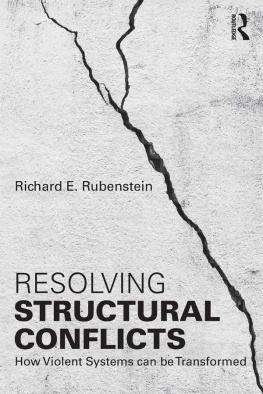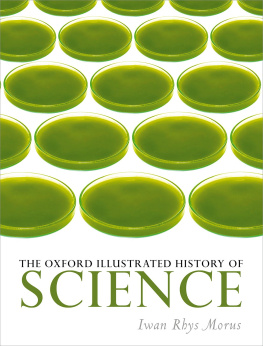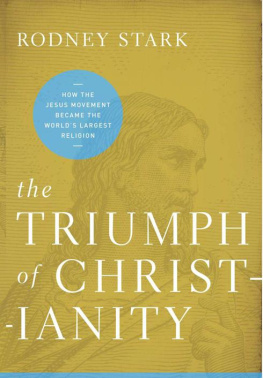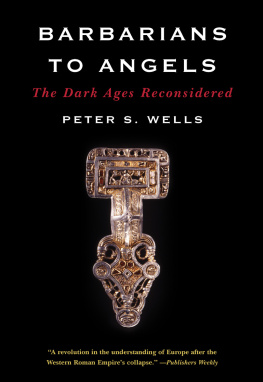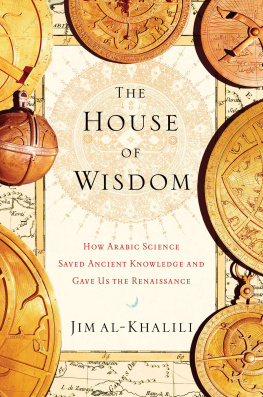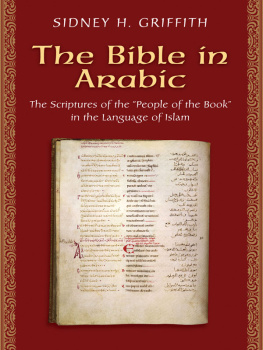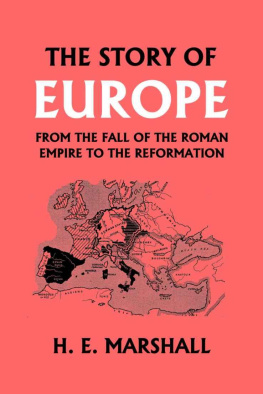H ARCOURT , I NC.
Orlando Austin New York San Diego Toronto London
Copyright 2003 by Richard E. Rubenstein
All rights reserved. No part of this publication may be reproduced
or transmitted in any form or by any means, electronic or mechanical, including
photocopy, recording, or any information storage and retrieval system,
without permission in writing from the publisher.
Requests for permission to make copies of any part of the work
should be mailed to the following address: Permissions Department,
Harcourt Inc., 6277 Sea Harbor Drive, Orlando, Florida 328876777.
www.HarcourtBooks.com
Illustrations by David Toohey
Library of Congress Cataloging-in-Publication Data
Rubenstein, Richard E.
Aristotle's children: how Christians, Muslims, and Jews rediscovered
ancient wisdom and illuminated the Dark Ages/Richard E. Rubenstein.1st ed. p. cm.
Includes bibliographical references and index.
ISBN 0-15-100720-9
1. Scholasticism. 2. AristotleInfluence.
3. Faith and reasonChristianityHistory of doctrines. I. Title.
B734.R79 2003
189'.4dc21 2003006582
Text set in Fournier
Designed by Linda Lockowitz
Printed in the United States of America
First edition
A C E G I K J H F D B
For Susan
"Love calls us to the things of this world."
Contents
P REFACE ix
P ROLOGUE The Medieval Star-Gate 1
O NE "The Master of Those Who Know" A RISTOTLE R EDISCOVERED 12
T WO The Murder of "Lady Philosophy" H OW THE A NCIENT W ISDOM W AS L OST, AND H OW I T W AS F OUND A GAIN 47
T HREE "His Books Have Wings" P ETER A BELARD AND THE R EVIVAL OF R EASON 88
F OUR "He Who Strikes You Dead Will Earn a Blessing" A RISTOTLE A MONG THE H ERETICS 127
F IVE "Hark, Hark, the Dogs Do Bark" 168
A RISTOTLE AND THE T EACHING F RIARS
S IX "This Man Understands" 206
T HE G REAT D EBATE AT THE U NIVERSITY OF P ARIS
S EVEN "Ockham's Razor" T HE D IVORCE OF F AITH AND R EASON 239
E IGHT "God Does Not Have to Move These Circles Anymore" A RISTOTLE AND THE M ODERN W ORLD
N OTES 299
S ELECT B IBLIOGRAPHY 337
A CKNOWLEDGMENTS 351
I NDEX 353
Preface
F ROM THE BEGINNING , Aristotle's Children has been a series of surprises. One maps out a book in advance, of course, just like planning for any other journey. But there are books that carry the author in unforeseen directionsjourneys that end with the traveler gazing, wide-eyed, at a landscape that resembles nothing in any tourist guide.
I first came across the story of the Aristotelian Revolution while doing research on the causes of religious conflict. In the twelfth century, I learned, Christian churchmen working in formerly Muslim Spain rediscovered the bulk of Aristotle's writings, which had been lost to the West for almost a thousand years. No intellectual discovery before or after had anything like the impact of this remarkable find. Translated into Latin by multicultural teams of scholars, and distributed throughout Europe's new universities, the recovered documents triggered a century-long struggle that forever altered the way we think about nature, society, and even about God.
The story itself was the first surprise. What most astonished me was how little known it was, considering its high level of dramatic interest and great historical importance. The Aristotelian Revolution transformed Western thinking and set our culture on a path of scientific inquiry that it has followed ever since the Middle Ages. The confrontation between faith and reason that turned the medieval universities into ideological battlegrounds continues to this day in societies around the globe. One could hardly imagine a more pertinent story for modern readers, yet few people outside a small circle of academic specialists seemed to know anything about it. This was a puzzle whose solution eluded me until I had written most of the book.
One clue was the growing uneasiness I felt as I plunged more deeply into research about life in the medieval universities and the Church's reaction to the Aristotelian challenge. The historical materials seemed to contradict much of what I had been taught to believe about the emergence of the modern world from medieval backwardness. I knewor thought I knewthat the High Middle Ages in Europe was an era of passionate religious faith and the bloody Crusades, inquisitorial terror, and fierce doctrinal dogmatism. I knewor thought I knewthat Aristotle was the Father of Science, a thinker who believed that human reason, not tradition, revelation, or sentiment, could uncover objective truths about the universe. Naturally, in bringing these volatile extremes together, I expected an explosion. The Aristotelian Revolution would no doubt be a drama like Galileo versus the Inquisition or Charles Darwin versus the Creationists: an earlier version of the modern morality play in which brave Reason suffers at the hands of villainous Superstition before triumphing in the sunny dawn of Science.
Wrong! The story I found myself telling was far more complex and interesting than this stock scenario. Yes, scientific thinking in the West did begin in the intellectual explosion that followed the rediscovery of Aristotle's writings. But European Christians did not split into "rationalist" and "fundamentalist" camps, as I had expected. In a way that violated all of my modernist preconceptions, the leading force for transformative change in Western thinking turned out to be the leadership of the Catholic Churchthe very same leadership that was also conducting anti-Muslim Crusades and burning Christian heretics.
Rather than choose between the new learning and the old religion, the popes and scholars of the High Middle Ages tried to modernize the Church by reconciling faith and reason. This Herculean task generated one of the richest, most searching debates in Western historya battle of innovative thinkers whose discussions ranged over a vast spectrum of disputed issues, from the nature of scientific knowledge and the basic structures of mind and matter to the hope of immortality, the problem of evil, the sources of moral value, and the basic criteria for living a good life. Meeting the great scholastics and reliving their stormy debates proved an unexpectedly moving and absorbing experienceso much so, that my friends and students claimed that I had "disappeared" into the Middle Ages. But it was not really an escape from the present, since the concerns of these medieval thinkers resonate so sonorously with ours.
The Aristotelian Revolution took place during a period of economic growth, political expansion, and cultural awakening unprecedented in Europe: a turbulent, creative, dangerous era that some call the "medieval renaissance." People then, as now, felt a great yearning for wholeness and meaning in a world suddenly grown both smaller and more unfamiliar. They were consumed by the desire to understand, and by the need to make their lives on earth count for something. Perhaps that is why memorable characters like Peter Abelard and Roger Bacon, Thomas Aquinas, William of Ockham, and Meister Eckhardt seem to speak to us so directly about matters of common concern. Like us, they were experiencing an unsettling sort of "globalization." Their great passion was to integrate their understanding of the way things are and the way they should be. Their mission as Aristotelians and as Christians was to bring intellectual and moral order into a transforming world.
By the fourteenth century, despite these efforts, faith and reason were already headed toward the conflict-ridden separation that has characterized their relations ever since. What our story demonstrates, however, is that this condition is not eternal. The civilization that we call modern, with its split between the cultures of the heart and the head, its sanctification of power, "privatization" of religion, and commodification of values, emerged out of a very different past, and is in the process of evolving toward a very different future. Late in the writing process, it dawned on me that this might account for the studied indifference that has all but erased the Aristotelian Revolution from our historical memory. Such blank spots are often the result of the semiconscious neglect reserved for stories that run counter to generally accepted notions of who we are as a people, and how we got that way. Even though they relate to events that happened long, long ago, these contrary tales still have an unsettling capacity to "rock the boat."
Next page

